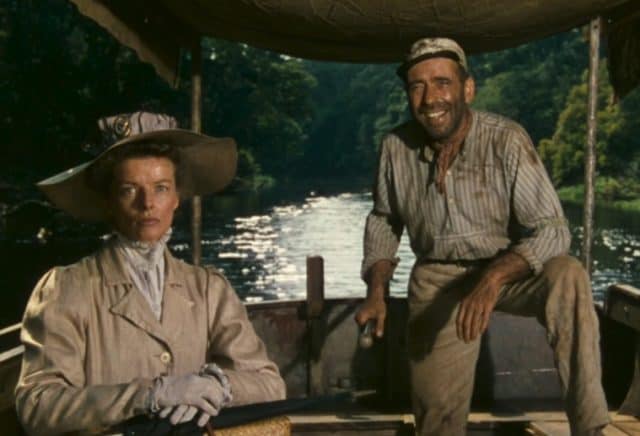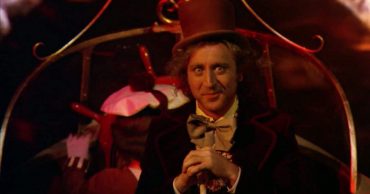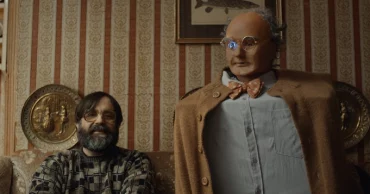
World War I — also known as the Great War or the War to End All Wars — was a devastating global conflict that resulted in the deaths of millions. Nine million soldiers and seven million civilians ended up dying as a direct result of the fighting. In fact, any given enlistee had about a 15% chance of perishing in the war. This war was prolonged due to the technical stalemate that resulted from the brutal trench warfare. It was also the first conflict in which a nation’s industrial capacity — i.e., their ability to quickly produce weapons and wartime vehicles — had a bearing on whether they won or lost.
World War One was among the most dangerous and deadly conflicts the world has ever seen. The untold amount of human suffering and sorrow marks the war as even worse than the one that followed it. Despite this, many films have been made about the First World War over the course of the last century that do it a decent amount of justice. If you want to learn more about some of these films, check out this list of the Top Twenty World War I Movies of All Time.
The Red Baron
One of the most famous pilots in World War One was Manfred von Richthofen. He was once a German cavalryman before transferring to the new air combat unit in 1915. Richthofen was credited with 80 official victories and was more often known as The Red Baron. The 2008 biographical war film of the same name (The Red Baron) was an excellent retelling of Richthofen’s tale. Interestingly, The Red Baron was filmed entirely in English. This helped the movie to become more commercially-viable in the international cinema scene. While it received an average reception globally after the March 2008 release, it was not very popular in Germany. This was due to the German taboo against glorifying war heroes — leading many critics to leave this film with some negative reviews.
La Grande Illusion
This war movie was released in 1937 (just about 20 years after World War One). It tells the tale of a group of French officers who have been captured as prisoners-of-war and are thus plotting their escape. It focuses mostly on themes of class differences — but notably takes its name from a British book called The Great Illusion. The author, Norman Angell, argued that the war was ultimately futile due to the common economic interests of all nations. La Grande Illusion touches on this idea and humanizes the characters of all nationalities. La Grande Illusion is often considered a masterpiece of French filmmaking. It has also been consistently rated among the best films ever made in the entire world. When it was released in the late 30s, it even became the very first foreign film ever nominated for the Academy Award for Best Picture. It was also named the Best Foreign Language Film by the National Board of Review in 1938. Interestingly, this film was nearly lost during World War II during a bombing. However, more prints were discovered and restored, bringing this excellent film back to the world.
The Big Parade
Another classic piece of cinema is the 1925 silent film called The Big Parade. This film was an accurate and realistic rendition of the First World War told through the eyes of a rich enlistee to the 42nd Infantry Division. James Apperson (played by John Gilbert) experiences the horrors of war firsthand — including the gritty realities of trench warfare. The Big Parade deals with themes of class differences, the human cost of war, and finding love on the frontlines. This film was a huge influence on many World War I movies that followed it. In fact, it has even been preserved in the Library of Congress’ National Film Registry. This is an honor that was bestowed upon the film in 1992. It is reserved for those films which are “culturally, historically, or aesthetically significant”. When the film was released it received much critical acclaim and ended up grossing up to $22 million. This was an incredible amount of success — especially because the original budget was only around $380,000.
The Blue Max
In 1966, The Blue Max first hit the theatres. This film focused on a German fighter pilot who flew his plane on the Western Front during the First World War. It is based on the novel of the same name by Jack D. Hunter and easily sets itself apart from other war films. For example, most WWI films about fighter pilots romanticize them. However, Bruno Stachel (the main character) is shown to be a selfish man with no regard for his fellow human beings. This is most evident in his never-ending quest to obtain the “Blue Max”, an award for valor that is only awarded to those who shoot down twenty aircraft. This film received decent reviews upon its release in the mid-1960s. It was praised for its flying scenes and music. However, some of the themes that The Blue Max touches on are somewhat controversial — such as the effects of the military-industrial complex during the First World War. Despite this, it is renowned worldwide. The Blue Max was also named one of the top six WWI films by director Peter Jackson.
War Horse
One of the most recent World War One films came from director Steven Spielberg in 2011. Based on the novel of the same name, War Horse tells the story of a bay Thoroughbred horse who is purchased by the British Army. The horse, named Joey, has a firsthand look at the tragic occurrences of World War One as he travels throughout Europe during his deployment. This was Spielberg’s first WWI film, though he had directed several WWII films in the past. War Horse was a box-office and critical success. It met with shining reviews that praised the cinematography, storyline, excellent acting, and many other aspects of the film. It was nominated for several awards as well, including the Academy Award for Best Picture as well as two Golden Globes and five BAFTAs. War Horse also laid claim to the title “highest-grossing WWI film” for five years, until it was eclipsed by Wonder Woman.
The Lighthorsemen
The 1987 Australian film titled The LIghthorsemen tells the story of a little-known unit that participated in the Middle Eastern theatre of WWI. The movie is based on the true story of an Australian cavalry unit that fought in the Battle of Beersheeba in 1917. Each of the characters is a reflection of a real person. The film tackles themes of friendship, loss of innocence, larrikinism (rowdiness), and the Australian national identity. It was historically-accurate and well-written. Overall, The LIghthorsemen received good reviews. Many critics praised the film’s climax — a flawlessly-shot action scene that featured tons of horses. Though the film didn’t boast a very high gross profit (and is sometimes considered a commercial disappointment), it still managed to win an AFI award for Best Original Music Score and another for Best Achievement in Sound. Plus, it has been included on the list of the top Australian films by the Australian Film Commission.
Gallipoli
Another Australian war film, Gallipoli was first released in 1981. It features the tale of several rural-dwelling Australians who enlist in the Army upon the advent of the First World War. They are eventually sent to Gallipoli — a peninsula owned by the Ottoman Empire and located in modern-day Turkey. Gallipoli is a great war film that takes on important themes — particularly the loss of innocence experienced by the enlistees as they realize how futile the act of war is. Gallipoli was a commercial success, grossing around eleven million Australian dollars. While the film did not achieve the same amount of success in the international sphere, it was still widely recognized by critics all around the globe. In Australia, it even managed to take home eight AFI Awards — including Best Film, Best Actor, Best Screenplay, Best Director, and many more. Overall, it helped to bring the Australian film industry into the international spotlight.
The African Queen
This 1951 British-American film was adapted from a novel by C.S. Forester that was also called The African Queen. It is a riveting tale about a pair of Methodist missionaries who live in a village in German East Africa at the beginning of World War I. They eventually meet up with a steamboat captain who attempts to extract them from the village after it is burned down by the Germans. This action-packed World War One film is one of the best to come out of classic Hollywood. The African Queen received excellent reviews when it was released in 1951. It was nominated for several Academy Awards, of which Humphrey Bogart (who played the steamboat captain) won one of. He received the Academy Award for Best Actor — which also happened to be the only Oscar win in his career. The film has also been preserved in the National Film Registry for its significance in the history of American media.
Flyboys
A 21st-century World War One film, Flyboys starred James Franco, Martin Henderson, and many more top names in Hollywood as volunteer fighter pilots who signed up for the Lafayette Escadrille. This was a foreign air legion, of sorts, that consisted of 38 Americans and 5 French officers. Flyboys is based on the true story of these volunteer pilots and each character remains true to their real-life counterparts. It’s a great action film set in the tried-and-true air combat scene of the First World War. This film had a very solid opening weekend, coming it at #4 in the domestic box office. It isn’t for everyone — not all viewers will appreciate the storyline and action scenes that make this movie great. It never received top critical reviews. However, it is still a very good film for those whose tastes it appeals to. Perhaps the biggest market for Flyboys is World War One air combat aficionados or military buffs.
Lawrence of Arabia
T.E. Lawrence was one of the most recognizable figures of the First World War. He served in the Middle Eastern theater and played a key role in the Arab Revolt. The 1962 film, Lawrence of Arabia, depicted this historical figure’s experiences during World War I. It focuses on the attacks on Aqaba and Damascus mostly, but also notes his own emotional struggles with violence, identity, and allegiance. Lawrence of Arabia was incredibly well-received. It was praised for the writing, directing, editing, and general cinematography that the film displayed. In fact, this movie even took home seven of the ten Academy Awards it was nominated for — including Best Picture and Best Director. It also received a Golden Globe Award for Best Drama and two BAFTA Awards for Best Film and Outstanding British Film. Lawrence of Arabia has also been preserved in the Library of Congress’ National Film Registry.
The Trench
The 1999 film The Trench is an independent film. It follows a group of British soldiers during the lead up to the Battle of the Somme. The film is meant to portray a realistic view of what it was like to be a soldier during The Great War — especially focusing on how camaraderie was essential to one’s survival on the front lines. The Trench never received widespread recognition. Despite this, a couple of critics have given it positive reviews for its characterization, emotional honesty, and excellent storyline. This film may be slightly obscure, but it is a great one to watch for anyone interested in the First World War. Plus, it features Daniel Craig in a role before he became well-known worldwide.
The Lost Battalion
The Lost Battalion was created in 2001 and went straight to television. It focuses on the Lost Battalion of World War I — a group of nine companies of the 77th Infantry Division that were surrounded by the Germans in the Argonne forest. This film explores the hardship of war, loyalty, and bravery in away that no other World War I film has achieved. This film has been praised for its strict attention to historical accuracy, intense action scenes, and compelling script. The Lost Battalion was also nominated for three Emmy Awards, and won a Motion Picture Sound Editors Award and the Christopher Award. This made-for-television movie often flies under the radar — but it is definitely worth a watch if you are interested in World War One.
Joyeux Noel
This 2005 film depicts World War One through the eyes of the Germans, French, and British. It is based on the Christmas truce of 1914 — an unofficial ceasefire that was observed by both sides for just a single night. The film mostly focuses on how the lead singer of the Berlin Imperial Opera visited the front lines during the truce — even leading the opposing French to stand up and applaud. However, it explores more themes than just Christmas goodwill. Joyeux Noel was well-received. It was praised for its visuals and anti-war sentiment. Plus, it was even nominated for Best Foreign Language Film at the 78th Academy Awards. All-in-all, Joyeux Noel ranks among the best WWI films to ever grace the silver screen — and perhaps the best ever to come out of France.
https://www.youtube.com/watch?v=qjShY35NKm0
Beneath Hill 60
This Australian war film is another great entry from the Outback nation. Beneath Hill 60 tells the little-known story of the 1st Australian Tunneling Company’s attempt to go under the dangerous Hill 60 rather than attempt to ascend it. It was released in 2010 and was showcased at the Cannes Film Festival. It made an international release by April of that year. Beneath Hill 60 received nearly-exclusively positive reviews. It also took home an Australian Screen Editor’s award for the Best Editing, a Film Critics Circle of Australia award for Best Screenplay and was nominated for many more after its release. This film is perfect for those who are interested in the more obscure aspects of World War One history. You may even learn something from this historically-accurate film.
https://www.youtube.com/watch?v=s7tY4WaWZzA
Westfront 1918
Westfront 1918 is a German film that originally premiered in 1930. It is set on the Western front and takes place mostly in the trenches. This film was based on the novel called Vier von der Infanterie by Ernst Johannsen. Westfront 1918 seeks to provide an accurate portrayal of how war affects people on a personal level — and the result was a bleak but memorable classic film. This film was initially a huge critical success. It was director Pabst’s very first ‘talkie’ film — representing one of the pioneering uses of sound in cinema. During the rise of the Nazi party in Germany, Westfront 1918 was pulled from theaters and the public sphere in general. This was due to the distinct anti-war message of the film, which the Nazis labelled “cowardly defeatism”.
A Very Long Engagement
This French war film came out in 2004. A Very Long Engagement focuses on a young woman’s search for her fiancée, despite the possibility that he may have been killed during his deployment in World War One. It is based on a novel of the same name by Sebastien Japrisot that was first published in 1991. This is a wonderful wartime romance that you might want to check out. It was a commercial and critical success and was even nominated for a couple of Academy Awards. It also won five Cesar Awards (the French equivalent to the Oscars). The film was also nominated for several more awards, including BAFTA Awards, Golden Globes, and Critics’ Choice Awards — though it didn’t win any. Despite this, A Very Long Engagement is a great film to check out if you are looking for a World War One romance to watch.
Sergeant York
Right before the United States entered the Second World War, this film about the most-decorated American soldier in the First World War was released. It followed the story of Sergeant Alvin York — and was even directly based on York’s actual diary. While York had not wanted his story to be monetized and filmed, he eventually acceded in order to finance his pet project (an interdenominational Bible school). The 1941 film Sergeant York is a great reflection of Alvin York’s actual life and performance in the First World War. This film was the highest-grossing in 1941 and brought home a few awards. Most notably, actor Gary Cooper won the Academy Award for Best Actor. Sergeant York also received the Oscar for Best Film Editing. This film has consistently been rated among the best ever released in America. It has even been inducted into the National Film Registry.
The Dawn Patrol
The 1938 film The Dawn Patrol was based on a short story by John Monk Saunders called The Flight Commander. It focuses on three Royal Flying Corps pilots who served during World War I. It is from this film that many of the clichés surrounding the fighter pilots of the First World War arose — including the scarves, fatalism, and short life expectancy of new pilots that are often depicted in later films. The Dawn Patrol was released at a perfect time due to the looming threat of the Second World War. It had a very pacifist script, which appealed widely to consumers and critics all across the country. It ranks among the most popular Warner Bros movies of the 30s and is a great entry into the World War One fighter pilot genre.
Paths of Glory
This late-1950s film by Stanley Kubrick was based on a novel by Humphrey Cobb of the same name. It focuses on a character named Colonel Dax who must defend his soldiers against a cowardice charge for refusing to carry out a suicidal attack. This film had a distinctly anti-war message, which was a perfect fit for the paranoid Cold War society of the time it was released in. Despite decent critical and commercial success in the United States, it was a controversial film in other nations. In France, many military personnel (active or retired) criticized the film and its portrayal of the French military. Germany also refused to show the film in order to preserve their relationship with France. In Spain, Francisco Franco refused to allow the film to be shown (and it wasn’t until 1986). Finally, the Swiss military also required the film to be censored until the year 1970.
All Quiet on the Western Front
Arguably the most famous World War I movie of all time, All Quiet on the Western Front was released in 1930. It provides an incredibly realistic take on warfare and how it affects those who must participate in it. The film has a strong anti-war message and is one of the best pre-Code war epics that have ever been released. All Quiet on the Western Front has been critically-acclaimed for decades. Over 60 years after its initial release, for instance, it made a list of the Top 100 Films by the American Film Institute. It has also been ranked among the best American epics of all time. All Quiet on the Western Front was the first to win the Academy Awards for both Outstanding Production and Best Director. This film has also been inducted into the National Film Registry — a testament to its influence and significance in American cinema.
 Follow Us
Follow Us




